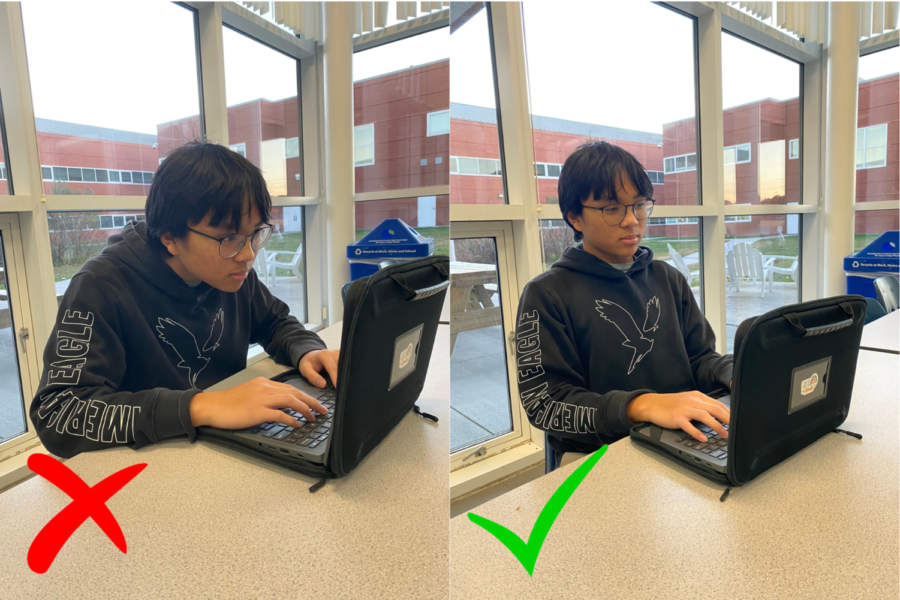Poor posture wreaks students’ health
Sophomore Louie Postrano demonstrates how to improve posture while sitting in front of a chromebook on Dec. 1, 2022.
December 6, 2022
More than three in five adolescents reported incorrect posture out of a survey of almost 600,000 students, according to an experiment conducted by iScience. Bad posture habits begin in adolescence and carries through students’ lifetime, and it can cause severe health problems.
According to New York Times author Jane Brody, poor posture causes ill effects throughout the entire body, not just simple muscle aches. This includes breathing limitations, joint arthritis, digestive problems and mental health issues, such as mood disturbances. Many teens struggle with adequate sleep and energy, however bad posture causes additional fatigue. Although many young teens do not foresee long-term symptoms, studies from the University of Texas have linked cardiovascular diseases, obesity and some types of cancer.
“Sometimes when I look at my phone for a long time, my neck becomes sore for awhile,” said sophomore Jonathan Del Rosario. “It’s crazy how something so simple can kill me.”
Luckily, such severe health consequences are preventable. Take frequent breaks, move around the classroom and sit up straight with a concave-like back. On sedentary occasions, do not stay in one position for a long time and rotate the neck every once in a while to prevent muscle strains. Studies have shown that roughly 50-60 pounds of force is exerted on the neck when bent. These tips will prevent back and neck aches, and severe damage in the future.
“Good posture makes me feel taller and stronger. I no longer have constant back pain or neck pain from not sitting right. I have more energy throughout the day because I feel the blood circulating through my body better rather than it sitting in one spot, “ said sophomore Kai England.
A Healthline report conducted a 2009 study. They found that good posture is connected to higher self-esteem and better mood. In the classroom, students learn better and perform higher on tests when confidence is present.
“Good posture correlates with overall good health; it will help you pay attention in class,” said Jocefe Adriano, the AP Computer Science Principles teacher.


